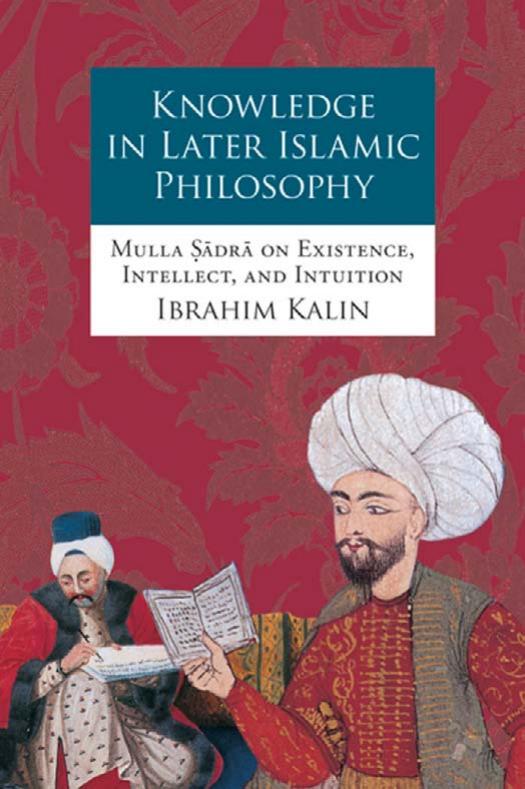Knowledge in Later Islamic Philosophy: Mulla Sadra on Existence, Intellect, and Intuition by Ibrahim Kalin

Author:Ibrahim Kalin [Kalin, Ibrahim]
Language: eng
Format: epub, pdf
Published: 2010-05-03T23:38:00+00:00
Within the Islamic philosophical tradition, two problems proved to be the most challenging for Sadra: the critique of essentialism and the representational theory of knowledge. The `polemical' aspect of Sadra's thought centers, inter alia, around these two issues. The ultimate challenge of Sadra's `transcendent wisdom' is to formulate a being-centered metaphysics and apply it to the problems of traditional philosophy. The definition of knowledge as a mode of existence is an important application of this concern whereby Sadra tries to overcome the dichotomy between the order of existence and the order of cognition. In contrast to the subjectivist tendencies of both classical Kalam and modern rationalism, Sadra begins with existence as his starting point, and works his way back to the manner in which it unfolds itself in our knowing processes of sensation, imagination, estimation, and intellection. The mind as the locus of the intelligibilia and the world as representation are non-starters for a proper ontological analysis. The task at hand is to start out with existence and eventually end with it.
Sadra's relentless effort to ground all knowledge in existence and its modalities has led some scholars to make comparisons between his thought and some trends in modern philosophy. Heidegger's revival of the question of existence is the first that comes to mind. Attempts have been made to bring out the similarities between Heidegger's Dasein and Sadra's wujud.' Although there are fundamental differences between the two, Heidegger's attempt to overcome the misdeeds of modern epistemology, which he attributes to the Cartesian cogito, shares the main thrust of Sadra's ambitious project to ground all cognition in existence. This is predicated upon Sadra's oftrepeated premise that it is impossible to know existence from a purely epistemological point of view, for there is no way we can stand outside existence to know it `objectively.' Nor can we see existence and its modalities from the standpoint of a `world-less subject' who, then, looks at a `subject-less world.' Although starting with different premises and arriving at different conclusions, both Heidegger and Sadra conclude that knowledge is not the exclusive property of the knower. Knowledge defined as an `effect' and modality of existence denies any central role to the knowing subject as the sole locus of intelligibility. Sadra's defense of the unification of the intellect and the intelligible is essentially non-subjectivist in the sense that it places knowledge not in the internal procedures of the mind but in the interactions between the knowing subject, the world, and the intelligibilia, all of which are subsumed under the all-inclusive reality of existence.
The comparisons between the two philosophers, however, stop here. Sadra's analysis of existence is a far cry from the main thrust of modern philosophy. For one, Sadra's philosophy is grounded in a concept of transcendent that retains and expands the fundamental vision of traditional metaphysics. The knowing subject or the `individual' never stands out as a major concern of the traditional philosopher. The individual does not arise as a proper term of philosophical analysis for it is seen as part of the larger framework of existence and intelligibility.
Download
Knowledge in Later Islamic Philosophy: Mulla Sadra on Existence, Intellect, and Intuition by Ibrahim Kalin.pdf
This site does not store any files on its server. We only index and link to content provided by other sites. Please contact the content providers to delete copyright contents if any and email us, we'll remove relevant links or contents immediately.
| Africa | Americas |
| Arctic & Antarctica | Asia |
| Australia & Oceania | Europe |
| Middle East | Russia |
| United States | World |
| Ancient Civilizations | Military |
| Historical Study & Educational Resources |
Never by Ken Follett(2880)
The Man Who Died Twice by Richard Osman(2298)
Machine Learning at Scale with H2O by Gregory Keys | David Whiting(2289)
Fairy Tale by Stephen King(2069)
Will by Will Smith(2041)
Rationality by Steven Pinker(1764)
The Dawn of Everything: A New History of Humanity by David Graeber & David Wengrow(1570)
The Dark Hours by Michael Connelly(1569)
Principles for Dealing With the Changing World Order: Why Nations Succeed and Fail by Ray Dalio(1373)
Friends, Lovers, and the Big Terrible Thing by Matthew Perry(1327)
A Short History of War by Jeremy Black(1300)
HBR's 10 Must Reads 2022 by Harvard Business Review(1256)
Go Tell the Bees That I Am Gone by Diana Gabaldon(1234)
Can't Hurt Me: Master Your Mind and Defy the Odds - Clean Edition by David Goggins(1227)
515945210 by Unknown(1207)
Fear No Evil by James Patterson(1108)
443319537 by Unknown(1072)
Works by Richard Wright(1018)
Going There by Katie Couric(991)
